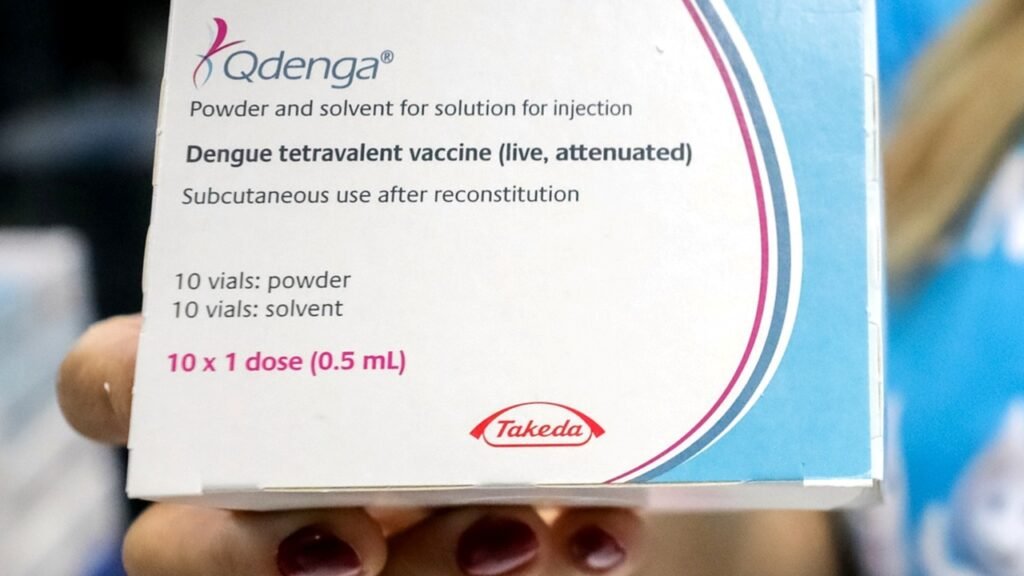Introduction
Dengue fever, caused by four serotypes of the dengue virus, continues to threaten public health worldwide, particularly in tropical and subtropical regions. The World Health Organization (WHO) estimates that dengue affects millions of people annually, with hundreds of thousands of severe cases leading to hospitalization or death. In response, the development of effective vaccines has become crucial for dengue prevention. Two prominent dengue vaccines, Dengvaxia and TAK-003 (Qdenga), represent major advancements in combating this disease.
Why Dengue Vaccines Are Essential
Dengue fever symptoms can range from mild flu-like signs to severe forms, such as Dengue Hemorrhagic Fever (DHF) and Dengue Shock Syndrome (DSS), which can be fatal without proper care. Controlling mosquito populations and reducing transmission has been the mainstay of prevention, but this approach alone has been insufficient. With the increasing geographic spread of dengue due to climate change and urbanization, a vaccine offers a proactive solution that can significantly reduce the disease burden, especially in areas with high transmission rates.
Dengvaxia: The First Dengue Vaccine
Dengvaxia (CYD-TDV), developed by Sanofi Pasteur, was the first dengue vaccine to receive approval. It is a live recombinant vaccine that protects against all four dengue serotypes. However, its use has been limited due to safety concerns. It is most effective for individuals who have previously been infected with the dengue virus. For those without prior exposure, Dengvaxia may increase the risk of severe dengue upon future infection. As a result, it is recommended for individuals aged 9-45 years who live in dengue-endemic areas and have confirmed prior dengue exposure(1)(2).
TAK-003 (Qdenga): A New and Promising Vaccine
TAK-003 (Qdenga), developed by Takeda, is a newer dengue vaccine designed to address the limitations of Dengvaxia. Unlike Dengvaxia, TAK-003 can be given to individuals regardless of previous dengue exposure. This live-attenuated vaccine protects against all four serotypes of the dengue virus and has shown high efficacy, particularly against serotypes 1 and 2.
TAK-003 has undergone rigorous testing, particularly in the TIDES trial (Tetravalent Immunization against Dengue Efficacy Study), which involved more than 20,000 participants in dengue-endemic areas across Latin America and Asia. In December 2022, TAK-003 was licensed for use in the European Union, and in May 2024, the WHO prequalified it, marking a significant step for global distribution(3)(4)(5).
The vaccine is administered in two doses, three months apart, and has been shown to provide strong protection, especially for children and adolescents aged 6-16 years. Its safety profile is robust, with only mild side effects like injection site pain and mild fever. This broader applicability and safety make TAK-003 a promising solution for large-scale dengue vaccination programs(6).

Future Prospects for Dengue Vaccines
While both Dengvaxia and TAK-003 are significant milestones, there are ongoing challenges and opportunities for improvement. For instance, TAK-003 is not yet recommended for children under six years of age, as studies have shown lower efficacy in this group. Additionally, while both vaccines offer strong protection, their long-term efficacy—particularly against severe cases and hospitalizations—remains an area of continued study(7).
Moving forward, public health experts anticipate that integrating TAK-003 into national immunization schedules, particularly in dengue-endemic countries, could significantly reduce the number of infections and hospitalizations. Combining vaccination efforts with other control measures, such as vector control and community education, will be essential for comprehensive dengue prevention strategies.
In the future, advancements in vaccine technology may lead to improved formulations that offer longer-lasting immunity, broader age group protection, and even single-dose vaccines. As more data emerge from ongoing clinical trials and post-market surveillance, the effectiveness of these vaccines in real-world conditions will further shape global dengue prevention efforts.
Conclusion
The development of dengue vaccines, including Dengvaxia and TAK-003, marks a turning point in the global fight against dengue fever. While Dengvaxia opened the door to vaccine-based prevention, TAK-003 offers broader protection and ease of use, making it a more versatile and effective option for dengue-endemic regions. As vaccines become more widely available, they have the potential to drastically reduce dengue cases, prevent severe complications, and save countless lives. However, continuous research, monitoring, and improvements are necessary to fully control this global health threat.
